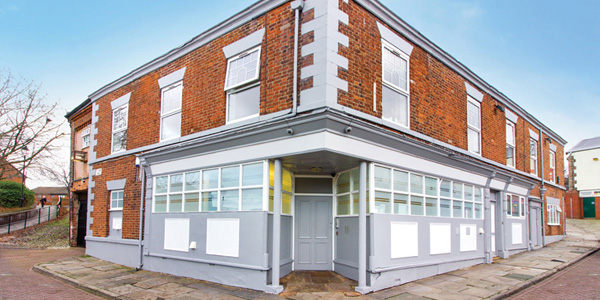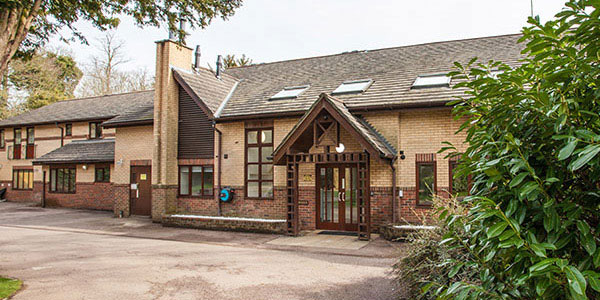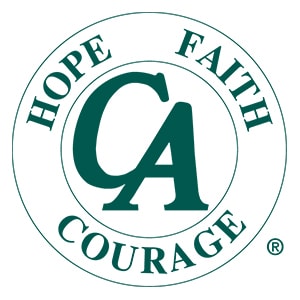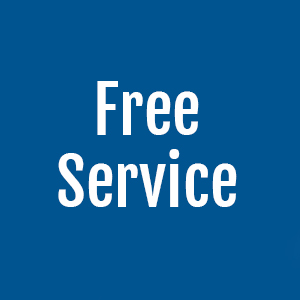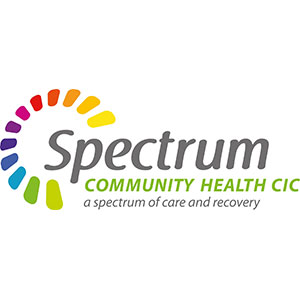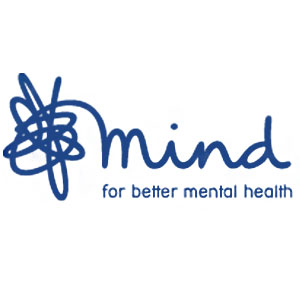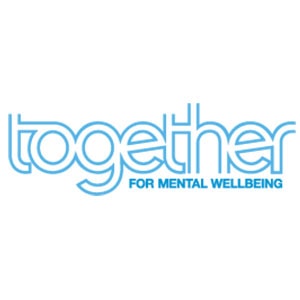No part of the UK is free from the ravages of addiction – be it to alcohol, illegal drugs, prescription medication, or a combination of any of those – and that includes York, which is suffering from a serious hard drug problem. However, although the challenges are substantial, there is hope: many treatment facilities lie within easy reach of York, offering high-quality care to addicts willing to reach out for help. If you are among them, stay strong: the path to recovery is only a phone call away…
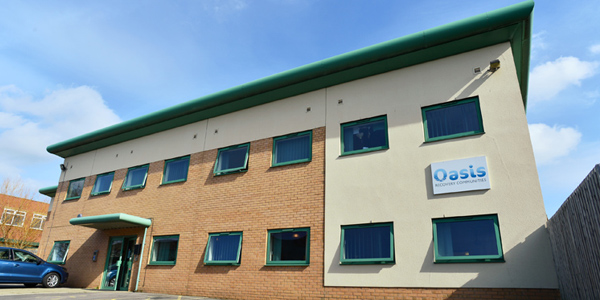
Built in 2009, Oasis Bradford was originally commissioned by the Department…
- Private
- 24/7 Nursing
- 24/7 nursing
- Residential
UKAT Rehabs
Oasis Runcorn is quite unique detox and rehab unit in offering two treatmen…
Banbury Lodge is a private UKAT rehab facility based in Banbury, Oxfordshir…
Liberty House Clinic is a fully furbished detox and rehabilitation facility…
-
- 12 Step
- Group Setting
- Free
- Outpatient
-
- Free
- Group Setting
- 12 Step
- Outpatient
-
- Free
- Group Setting
- 12 Step
- Outpatient
-
- Free
- Substance Misuse
- Outpatient
- Health
-
- Free
- Mental Health
- Outpatient
- Support
-
- Free
- Mental Health
- Outpatient
- Support
- Load More
Drug & Alcohol Rehab Services in North Yorkshire
- A
- B
- C
- D
- E
- F
- G
- H
- I
- J
- K
- L
- M
- N
- O
- P
- Q
- R
- S
- T
- U
- V
- W
- X
- Y
- Z
Private Rehab

Residential rehabilitation (or “rehab”) is the name given to a dedicated facility where addiction treatment is provided, and to the treatment itself – usually comprising both a detoxification (“detox”) phrase and a period of therapy. At rehab, patients benefit from a peaceful, attractive, confidential setting in which they can concentrate upon their recovery, away from their usual environment of substance abuse, and confident that details of their condition will not become common knowledge.
It is nowadays generally accepted that rehab provides the most effective treatment of addiction, in terms of producing permanent abstinence on behalf of the addict. Rehab’s holistic approach, addressing both the immediate challenge of physical dependency (via detox) and the more pernicious problem of psychological addiction (which needs to be countered by therapy) contrasts with a plethora of treatment methods addressing only one aspect (typically physical dependency) of addiction; the latter are unlikely to result in a permanent recovery since the underlying causes of addiction remain untouched.
How can I get Someone into Rehab?
Addiction can destroy lives gradually and inexorably – but it can also end them in an instant, as a result of overdose, accident, or acts of violence. Because of this, every moment counts in the fight against substance abuse. The quality of NHS addiction treatment services is high – but, unfortunately, so is the demand for them.
If you are in York and are wrestling with addiction, you may need urgent help and NHS waiting times may simply be too lengthy. Don’t allow any more time to slip by before getting help: reach out today to find out about some private options available to you which could mean the difference between life and death.
The Advantages of Private Rehab
Any addict can testify that the temptations of their daily environment can be so great as to make individual attempts to “get clean” all but impossible. Rehab offers a pleasant, peaceful, secure and confidential setting, far from those temptations, in which addicts can focus solely on recovery.
Upon entering rehab, an addict will be assessed by a medical team before embarking on a period of detox and withdrawal supervised by highly experienced professionals who are on hand to make sure that this period is as safe and as comfortable as it can be (this may include the provision of certain medications to ameliorate the worst effects of withdrawal).
Following the detox phase, the patient will move into therapy – different models provided in various forms including group and one-to-one – aimed at addressing the root causes of addiction and at providing the addict with defence mechanisms against relapse. Throughout their stay the patient will be given healthy nutritious food based on a bespoke dietary plan, and will be given a tailored fitness schedule (on the basis that a healthy mind requires a healthy body).
Following the completion of treatment, the patient will leave rehab – but this does not mean that their recovery is complete: this is an ongoing process requiring constant attention and hard work, and as a result the patient will receive free aftercare for up to a year after leaving the facility.
What Does Rehab Cost Near York?
The cost of private rehab in or near York can vary significantly by treatment programme, and depending on which of a variety of optional extras are selected. As a rough guide, standard costs range from between £5,500 and £11,000 per month, though the cheapest rehab treatment can start from as little as £834 per week. For more details, call 0800 804 4755.
NHS Addiction Treatment Options Near York
If you feel that private rehab is currently not an option for you – and some people do take this decision, perhaps for reasons of cost, or if they do not feel that they can spend the required time away from family and/or work obligations – do not despair. Across York and North Yorkshire, various NHS and charity resources can be found which can help you combat your addiction. Have a word with your GP about which of these resources may be available to you and would be most appropriate for your specific situation.
Advantages of NHS Treatment
One obvious advantage of NHS treatment is, of course, financial: NHS options are free at the point of use while private rehab comes at a cost which may be offputting to some addicts (although set against the costs – financial and otherwise – of addiction, this investment may be comparatively minor). They are also very accessible geographically – the NHS operates in every corner of the country – and offer a high standard of service (though that quality does vary by location and, again, waiting times may be distressingly high).
Addiction Support Groups
A number of organisations exist across the country to provide assistance to recovering addicts, and some of these operate a support group model. Support groups are groups of individuals who are themselves recovering addicts – some only recently free from addiction, while others may have been clean for many years – and who come together at regular meetings to give and take mutual support: sharing their stories of addiction, giving advice on how to resist relapse, showing solidarity and sympathy when group members are struggling, and providing the simple companionship which can mean so much in times of difficulty and loneliness. Support group attendees can come from all walks of life, brought together by their shared experience of addiction and recovery; typically, attendance at support groups is free and the only qualification for participation is a commitment to leading a life free of substance abuse.
The most famous support group organisation, and the one on which most others are modelled, is Alcoholics Anonymous (AA) which was founded in 1935 and runs on a 12-step programme of personal and spiritual development, with one of the steps being a recognition that a higher power – such as God – can assist with an alcoholic’s recovery. Narcotics Anonymous (NA), founded in 1953 and based directly upon the AA model, is the second-largest support group organisation worldwide and caters to recovering drug addicts specifically. In a similar vein, but supporting those recovering from addictions to specific substances, are Cocaine Anonymous (CA), Heroin Anonymous (HA), Marijuana Anonymous (MA) and Crystal Meth Anonymous (CMA), all of which operate 12-step programmes. There are also support groups such as Al-Anon and Nar-Anon assisting the families and friends of addicts which typically hold meetings alongside those for the addicts themselves.
Support groups typically meet weekly, though each local chapter is managed independently and meeting times and venues are subject to change. To find information on meetings in or near York, see the relevant websites:
Alcoholics Anonymous
, Narcotics Anonymous; Cocaine Anonymous; Heroin Anonymous; Marijuana Anonymous; Crystal Meth Anonymous
Types of Counselling

One form of assistance for recovering addicts which is especially beneficial for those with extremely busy schedules is individual counselling – which can be engaged in either following attendance at rehab or other treatment as a supplementary aid to recovery, or potentially as a means of managing an addiction prior to engagement in a full treatment programme.
Private addiction counsellors operate very much like regular psychotherapists, though with an obvious emphasis on tackling the causes and consequences of addiction. Private counsellors offering a wide variety of different approaches to therapy can be found across the country; they can be seen by private appointment on an ongoing basis – usually weekly – and typically charge a fee per appointment. Some counsellors make themselves available for emergency access while others limit access to working hours.
How to Get to Oasis Recovery from York
Oasis Recovery is a unique and pioneering detox and rehab centre located in the heart of Bradford in a quiet secure location perfect for those struggling with addiction. Spacious and tranquil, Oasis Recovery’s highly skilled medical and support staff, and its excellent infrastructure, mean it can facilitate all manner of medical detoxes, including complex detoxes and those who require a higher intensity of medical care. Oasis Recovery boasts 19 en suite bedrooms – furnished to a very high standard – with walk-in showers, disabled facilities, large communal living areas, well-equipped treatment rooms, outside courtyard, and holistic spa jacuzzi. The medical team provide close monitoring of all patients throughout the day and night, while patients can also undergo structure therapeutic treatment alongside any medical detox which may be necessary.
To get to Bradford from York, take the A1036 down to the A64 towards Leeds, then merge onto the A1(M) via the ramp to Leeds. Keep on the A1(M) following signs for London/Leeds, then at junction 42 join the M62 towards Manchester/Bradford. At junction 26, take the M606 exit and stay on the motorway until junction 3, at which point take the A6177 and then the A641/Manchester Road; then follow signs to the city centre.
Oasis Recovery
21a Bolling Road
Bradford
BD4 7BG


